Tony Blair's warning to Labour evokes memories of Michael Foot
- Published
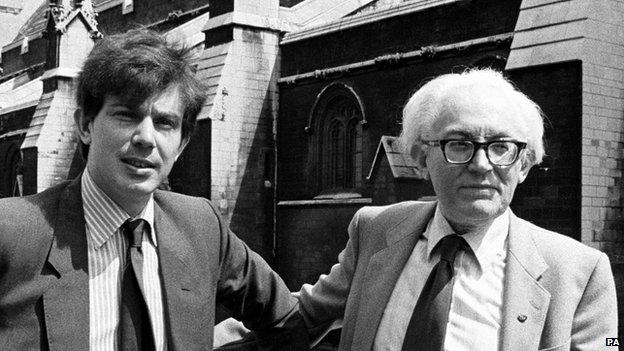
Tony Blair's warning to the Labour Party not to repeat the mistakes of the 1980s, which consigned it to 18 years in opposition, brought back memories of Michael Foot, its leader at the beginning of that lost decade.
Michael Foot died in 2010, aged 96. At his death, he was hailed by some as one of the great figures of the 20th Century Labour movement, even if others remembered him rather less generously as a disorganised and weak leader out of step with the times.
Mr Foot did, though, resemble some modern-day politicians in one respect: he graduated in politics, philosophy and economics from Oxford.
He first stood (unsuccessfully) for election in 1935, before going on to become a hugely successful and influential journalist and author.
He was also a founding member of the Campaign for Nuclear Disarmament, and built a reputation as a formidable orator and parliamentarian.
He served as Harold Wilson's Employment Secretary in 1974, a tough role at a time of fraught industrial relations, before becoming leader of the House of Commons in 1976.
Mr Foot was elected leader of the Labour Party in 1980, presenting himself as the candidate to unite the warring right and left wings of the party.
But Labour continued to tear itself apart after he became leader.
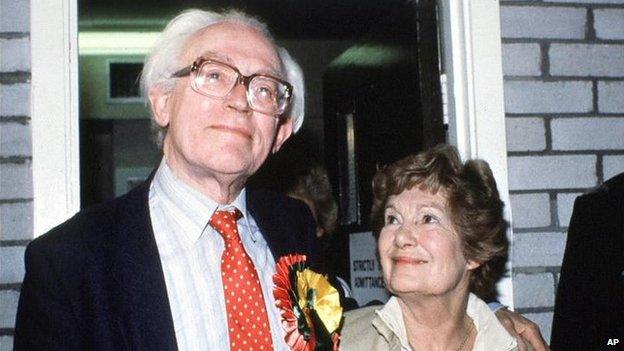
Mr Foot resigned days after the 1983 general election
There were problems with the Militant Tendency - a group of a few thousand activists bent on turning Labour into a Trotskyist movement.
The rifts and divisions worsened with the formation of the breakaway Social Democratic Party (SDP) in 1981.
Mr Foot soldiered on, presiding over Labour's disastrous defeat at the hands of Margaret Thatcher in the 1983 general election.
Mrs Thatcher won a massive majority of 144.
Labour won just below 28% of the vote.
The defeat was its worst showing since 1918, even though in later years some credited Mr Foot with holding the party together in one of the most turbulent periods in its history.
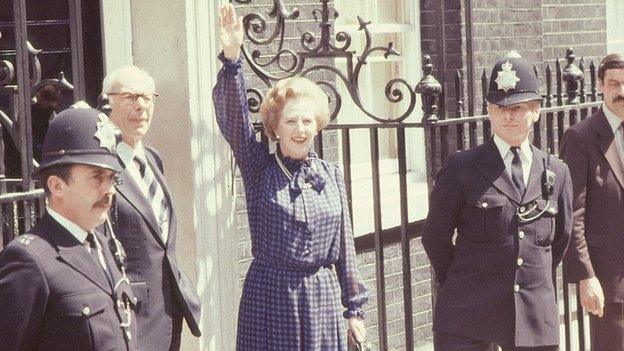
Mrs Thatcher's 1983 election victory was decisive
'Suicide note'
The 1983 election remains a sore point in Labour political folklore.
Mr Foot campaigned on a platform that included:
unilateral nuclear disarmament
higher taxes
nationalisation of the banks
withdrawal from the European Economic Community (EEC)
the abolition of the House of Lords
The Labour manifesto, 700 pages long, and in retrospect rather optimistically entitled The New Hope for Britain, did not bother to summarise the policies but instead simply included everything to avoid a bitter public clash between rival factions.
One story has it that a policy for socialist puppy farms was only just kept out of the final document.
It was later dubbed "the longest suicide note in history" by the Labour MP Gerald Kaufman.
The Labour campaign itself was a lesson in how not to run for office: it started badly and then fell away.
At one point, with Mr Foot under pressure, Labour's campaign committee passed a resolution confirming its confidence in his leadership qualities, only serving to undermine him further, and give new meaning, said critics, to the phrase "shooting yourself in the Foot".
Tony Blair sets out his vision for the Labour Party on his first day as an MP
The 1983 campaign, however, saw two future Labour prime ministers enter the Commons: Tony Blair and Gordon Brown.
Paddy Ashdown and Charles Kennedy, future leaders of the Liberal Democrats, were also elected in 1983, as was the future Tory leader, Michael Howard.
Mr Blair now says the politics of the 1980s belongs firmly in the past, even if it was the time that saw him begin his own journey to the summit of power.

Suggested further reading:
- Published23 July 2015
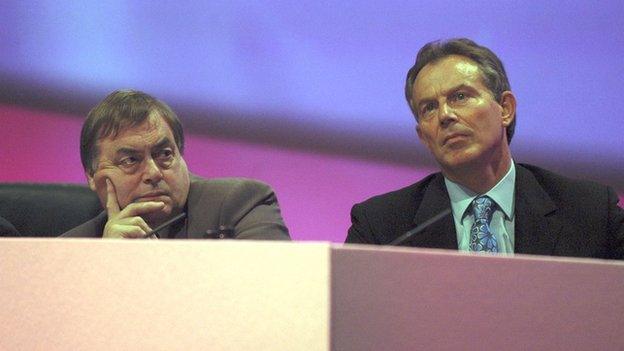
- Published23 July 2015
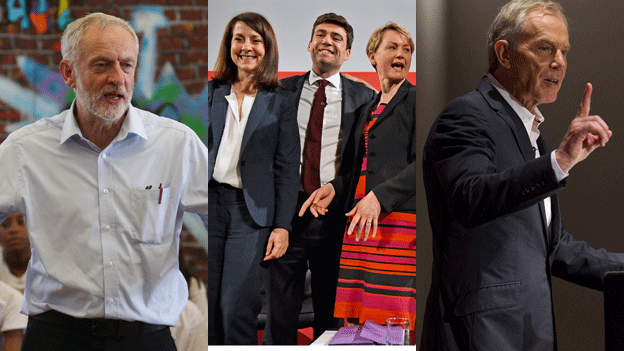
- Published22 July 2015
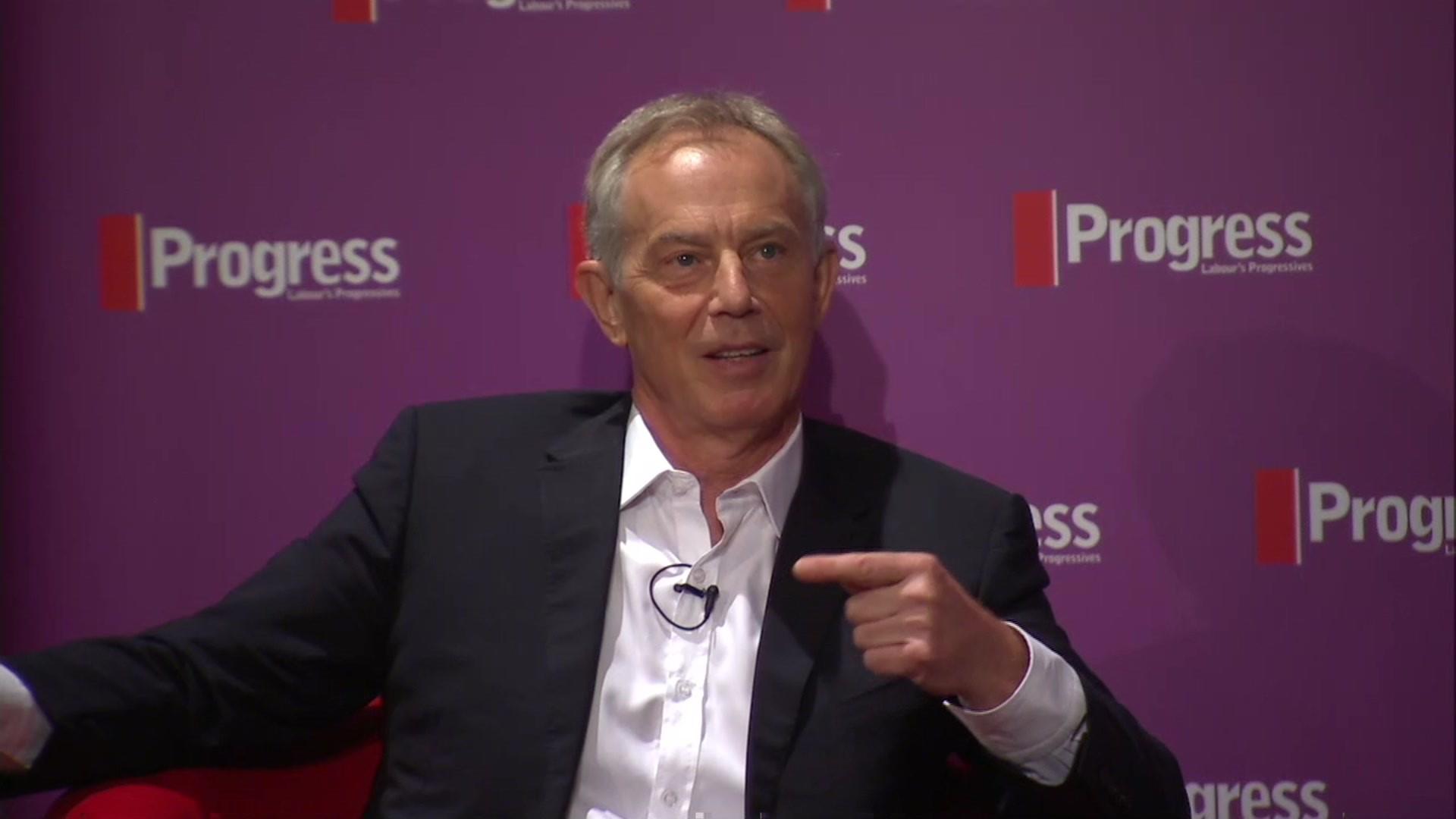
- Published22 July 2015

- Published21 July 2015
